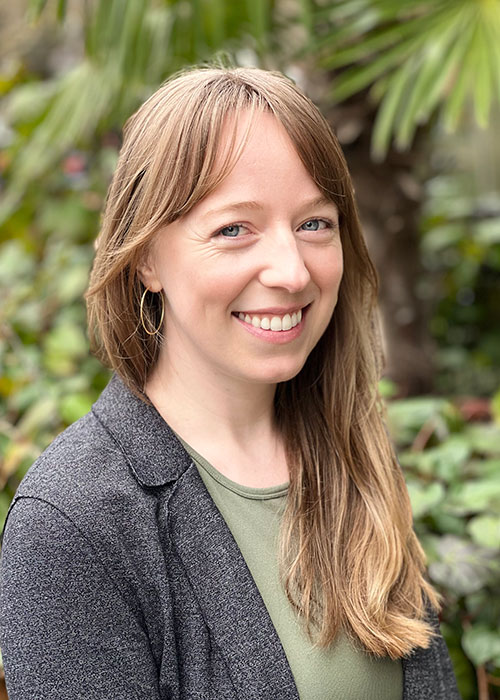
What influenced you to pursue a graduate degree in nutritional sciences?
I was motivated by an interest in the connection between chronic disease and nutrition. After several years in the non-profit workforce, I felt drawn to return to school to deepen my learning around public health, and to do this through the lens of nutrition, a topic that I personally care deeply about. Upon entering the program, I learned about the vast interconnectedness and complexity surrounding nutrition, public health, as well as mental health, which has been incredibly rewarding and eye-opening.
Why did you choose to attend UW?
I was drawn to the public health emphasis within this program, and also knew that I wanted to work directly with individuals. The combination of these two areas offered through the Graduate Coordinated Program in Dietetics (GCPD) and Master of Public Health programs seemed like the perfect fit for me.
How do you see the importance of nutritional sciences in public health?
It’s hard to separate nutrition and public health when thinking about social justice. While nutrition certainly impacts health outcomes, there are other determinants related to income, racial inequities, environment, and access to services that also impact health. I see nutrition as part of this interconnected web of determinants and believe that it needs to be seen within this context. Over the past two years, my understanding of nutrition and health has majorly shifted and expanded through learning about the research out of the Ellyn Satter Institute and gaining deeper insight into transformational movements such as Health at Every Size.
Tell us about your research work?
In my second year I was fortunate to take on a traineeship focused on leadership in maternal and child health. Through this work I completed intensive training on the Satter Eating Competence Model through the Ellyn Satter Institute and supporting research on this topic as it relates to the MCH field. As part of this, I supported Dr. Cristen Harris, a UW Nutritional Sciences Program faculty member, with research that examined Eating Competence among early learning providers in Washington State. Some of the key findings of this research offer insight into the value of weight neutral wellness programming for early learning providers, as well a foundation for understanding how eating competence of providers may affect nutrition health of the children they work with.
What has been a memorable part of your dietetic internship work?
Working with preceptors (supervisors) who are incredibly passionate about supporting people through nutrition has been so inspiring to me. I have had the opportunity to work with some wonderful dietitians and I hope to emulate their enthusiasm and kindness for their patients and clients in my work in the future.
What are your future goals?
My goals are to continue to develop my dietetic knowledge and counseling skills, and to use them to improve people’s lives and bring people more joy in all things related to food!
Outside of your studies, what activities do you enjoy?
Spending time with my husband, my dog and my friends. Going on local adventures to explore other parts of the Pacific Northwest. Gardening!
What do you enjoy most about living in Seattle?
I grew up in this area so for me it is home. I love being surrounded by water, mountains and trees. Seattle is really lush and although there’s lots of rain, we have constant greenery and fresh air.
What advice would you give a student who is considering graduate study with the UW Nutritional Sciences program?
This program provides a lot of opportunities to go deeper in your interest area, but also to explore other topics or avenues that you may not have considered. If you know your interests, but also are open to new directions, this is a great program for you.
Are you interested in studying nutritional sciences as a graduate student? Explore graduate study and RDN training offerings in the UW Nutritional Sciences Program.